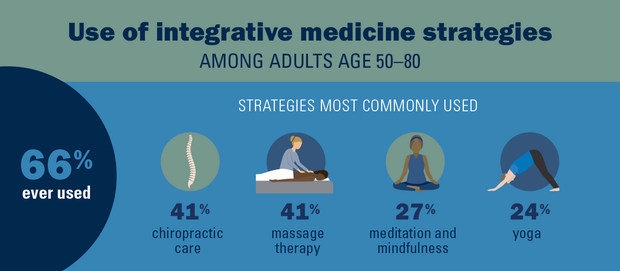They just don't mention it to their doctors, even though physicians ask what else they are doing or taking, including things like supplements.
New survey results show alternatives to medicine are embraced by women and people in middle age than men or senior citizens - but only 18 percent mention it to their doctors. It may be because of stigma. No matter that folk medicine has been rebranded to traditional medicine and then alternative medicine, complementary medicine, and now integrative medicine, it's still the case that none of them are medicine, and practitioners may feel like it doesn't need to be mention for that reason. They may consider it exercise. In the case of chiropractors, they may not want to be criticized.

The group behind the poll criticize that only 15 percent of health plans offer to pay for yoga classes, but they don't pay for crossfit or paintball either. With health care costs ballooning since the adoption of the Affordable Care Act, while availability for the poor has not improved, budgets are already tight. Forcing everyone else to pay for things that have never passed double-blind clinical trials the way medicine has is poor use of taxpayer funds. Yet practitioners believe, 82 percent say mental health impacts physical health, and that is certainly true, but then correlating a hobby to that is not evidence-based. If I say playing Dungeons & Dragons improves my well-being, and therefore perhaps physical health, does not mean you should have to buy my dice.
As we leave the latest pandemic behind and do our best to make sure we're prepared for the fourth coronavirus outbreak this century, mental health is going to be important, especially if people are isolating again. Yoga and meditation are great for navigating those tricky waters - but they are not medicine.




Comments